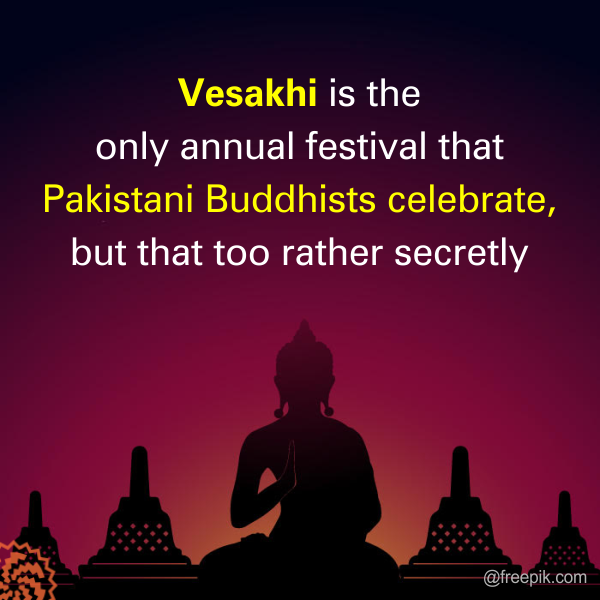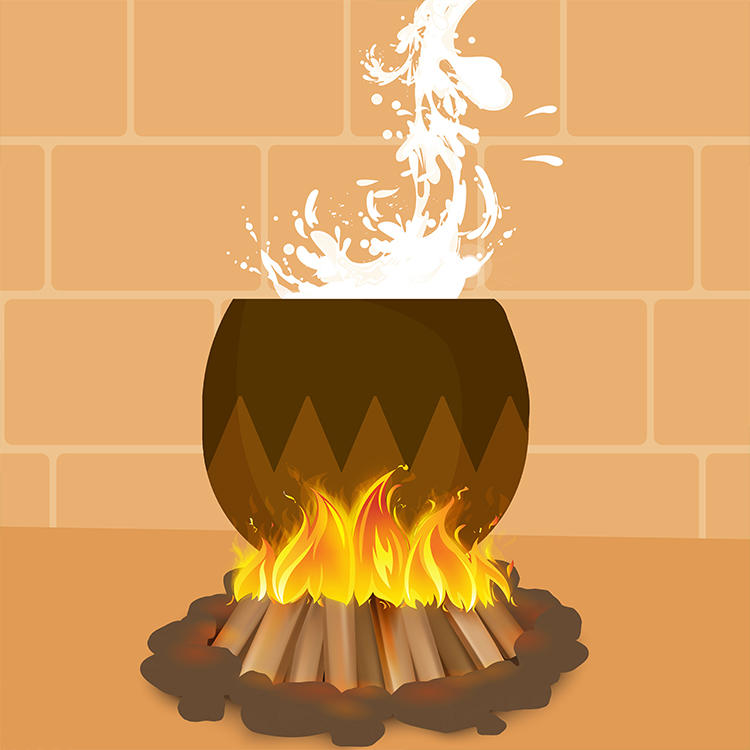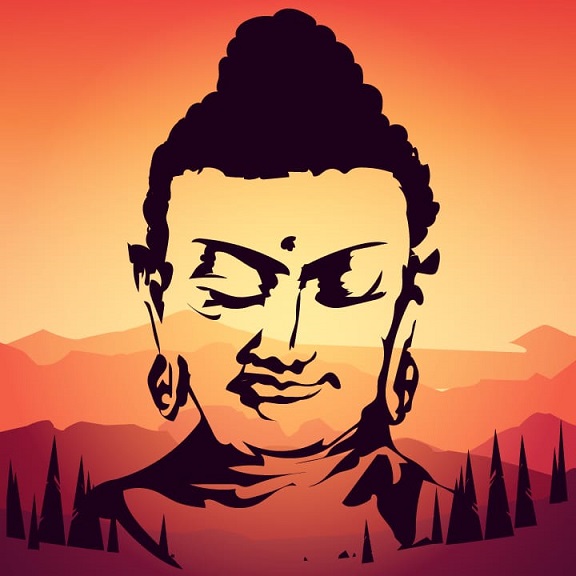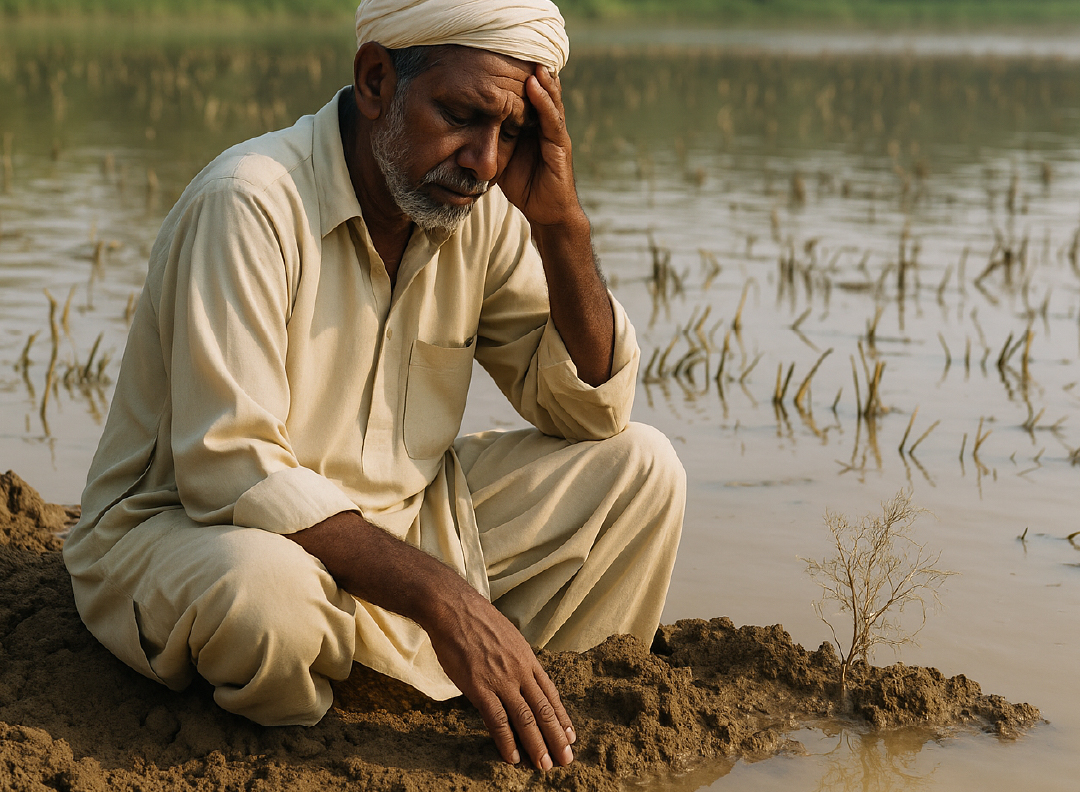Everything in Mir Mohalla looks frozen in time. Its narrow and winding streets appear to be the part of some ancient ruins and its houses, all tattered and torn, have a ghostly look about them. Even women standing on their doorsteps look older than they actually are.
Mir Mohalla is a small neighborhood almost in the center of Mehrabpur, a town with 50,000 or so inhabitants in northern Sindh’s Naushahro Feroze district. People belonging to different religions live in the neighborhood – including some of the last remaining Buddhists in Pakistan.
The Buddhist presence here is Mehrabpur’s best kept secret. Most residents of the town do not know much about them. In fact, their homes are locally referred to as Hindu’an ja ghar – or Hindu homes – although the adherents of the two religions have little in common in terms of beliefs and practices.
The ostensible reason for this confusion is the fact that about 200 Buddhists living in Mehrabpur neither have a place of worship of their own nor do they publicly celebrate any festival specifically associated with their religion. On the contrary, they are sometimes seen as celebrating Hindu festivals and rituals such as holi, diwali and rakshabandhan.
The Buddhist community’s own explanation for this confusion is that it does not want its religious identity to be known publicly. Ghulam, 75, one of the Buddhist elders in Mir Mohalla, says his community has been hiding its religious identity for a long time “for the sake of the survival of our religion”. Otherwise, he says, the Buddhists would have been wiped out from Pakistan.
Juman, another local resident, says the same thing. The Buddhists in Pakistan are living a hidden life because, according to him, they fear being converted to other religions if and when they disclose their religious identity. “Or their lives will be made worse than hell,” he says.
The Buddhist houses in Mehrabpur are surrounded by a boundary wall which underlines their precarious existence in a predominantly non-Buddhist town. The wall has only two major entrances -- one from the east and the other from the west – and has been built with the express purpose of keeping the Buddhist families safe from any untoward development.
Juman, 52, is a retired government school teacher. He is also the only Buddhist in Mir Mohalla to have given education to his children. The others are so poor that they barely manage a meal a day. “Almost every Buddhist man in Mehrabpur works as a laborer,” he says.
A younger Buddhist, Lala, 26, endorses this view. “My father and grandfather were laborers so am I because, like them, I could not go to a school,” he says. “My son will follow the same path.”

Lala does not blame his parents for not sending him to school because, he says, “the circumstances we have been experiencing since childhood do not allow us to get education”.
For Juman, his community’s acute poverty is a result of its continuous marginalization. He says the Buddhists living in Mehrabpur have had a long history of suffering injustices. “We have been living here for more than two centuries but our rundown houses and our unpaved streets show the level of development we have achieve during this period,” he says.
This economic deprivation is made poignant by the social exclusion this community is facing. “We don’t eat animals that the majority community regards as unclean. We keep our houses, our streets and our bodies neat and clean but, still, people hate us,” Juman says.
“They believe we deserve a bad treatment only because we are different from them,” he argues. This is another reason why “we are confined to this mohalla.”
Even this isolated existence, however, is becoming difficult to maintain. “On several occasions, influential people have tried to forcibly evict us from this mohalla in order to grab the land where our houses stand,” he says.
He also narrates how in 1984 his uncle died and was buried in a nearby local graveyard – as had been the practice since long. The very next day, he says, some Muslim preachers told the Buddhists to dig the grave and relocate the dead body elsewhere. “When we resisted, they threatened to attack us so we complained to a local notable person. He listened to the arguments from both sides and decided that we will never bury our dead in the local graveyard again and will also never visit the graves of our ancestors buried there,” Juman says. “We obeyed his order and purchased a piece of land in a nearby wilderness for our own graveyard.”
He stays silent when he is asked if Muslims are trying to convert the members of his community to Islam but he acknowledges that several Buddhists have become Muslims over the last few decades.
Such threats to the survival of his community, according to him, are originating from another religious community as well. “We feel more threatened from the Hindus than from the Muslims because the Hindus have always been trying to convert us to their religion,” he says. “By converting us, they want to increase their numbers in Pakistan but what about us? What about our religion? Nobody seems to be bothered about that.”
Also Read

Our ancestral menu: Did people from the Indus Valley Civilization consume meat and milk products?
Unsurprisingly, Juman is extremely worried about the coming generations of his community. “If the current scenario does not change, there might be no Buddhists left here in the near future.”
When he is asked if his community has ever thought of leaving Mehrabpur for another places, he says: “Where will we go? Do Hindus get all their due rights and the respect they deserve when they migrate to India from here?”
He says the local Buddhists, therefore, will never leave their birthplace. “Whatever sufferings we have to bear, we will bear them but we will never leave this land. Our life and death are tied to this land.”
He nevertheless acknowledges that some local Buddhists have indeed left Mehrabpur for some unknown destinations. “No one among us knows about their whereabouts and the circumstances of their lives,” he says.
The collective downfall
The Buddhists of Mehrabpur are so engrossed in making ends meet that they do not know or care much about who wins or who loses in local and national politics. So, according to their elders, they do not know whose help to seek for their economic development. “Not a single government official has ever come to see the conditions we are living in,” says Chanesar, a local Buddhist. “Aren’t we the citizens of this country? Don’t we deserve rights equal to those of other Pakistani citizens?”
Since the Buddhists living in Mehrabpur do not have a collective place of worship, each Buddhist household has reserved a corner of its house for prayer. This corner is called moorat – or idol. “We don’t feel the need to show others how religious we are or how we pray so we try to keep these activities private,” says Juman.
Vesakhi is the only annual festival that the Buddhists celebrate -- but that too rather secretly. According to Juman, most members of his community fast during the month of Vesakh, which coincides with the months of April and May. “The Buddhists also sleep on the floor during Vesakh,” he says.
Even on the day of the festival, they do not wear new clothes or spend time in meetings and greetings. “Women in every household prepare a good meal which is eaten by all family members together and then everybody returns to their daily routine,” says Juman.
Like Muslims – and unlike Hindus and Christians – the Buddhists allow cousin marriages. “We find matches for both girls and boys from among our extended families because we don’t have any other option,” he says.
Every now and then a Buddhist girl does elope with a non-Buddhist boy. If and when that happens, says Juman, “we never allow her to come back to this mohalla and her parents also break all ties with her.”
This report was first published by Lok Sujag on 26 Feb 2021, on its old website.
Published on 7 Jun 2022


















